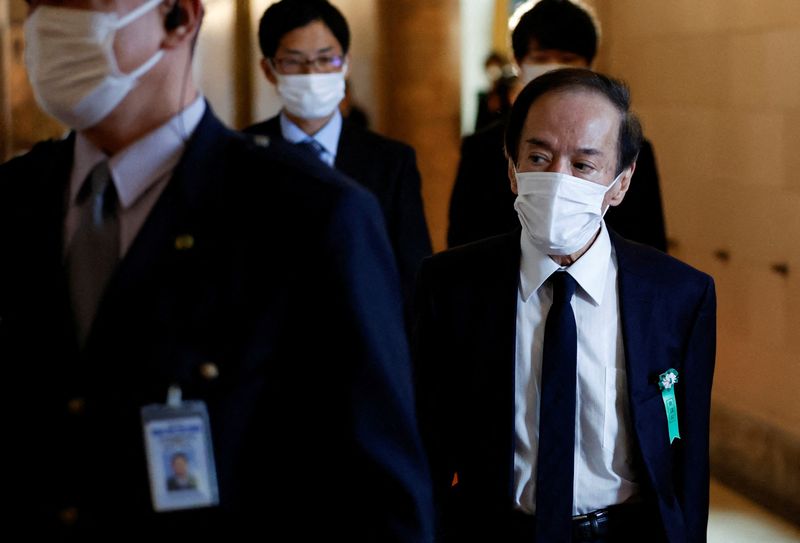A look at the day ahead in European and global markets from Tom Westbrook
Kazuo Ueda, who takes over as Bank of Japan governor in April, does not give the impression of a man in a hurry.
His surprise nomination for the job sent markets into a tizz a couple of weeks back as investors took the appointment of an outsider as a signal for change. Interest rate markets are positioned for an end to yield curve control as a first step away from decades of super-easy policy experiments in Japan.
Yet as he fronted his confirmation hearing before parliament on Friday, he sounded very much like incumbent Haruhiko Kuroda. It will take "some time" to achieve desired inflation, he said. "It's important to maintain monetary easing," he said.
Traders responded with relief and the Nikkei share average had its best session in a month. Ten-year Japanese government bond futures rallied about 20 ticks. Cash bond yields remained at their 0.5% ceiling. [JP/]
That could perhaps hold things until next week, when Tokyo CPI is due. Inflation hit a four-decade high last month, Friday figures showed, and the Tokyo reading is a reliable indicator so will be closely watched.
Meanwhile, investors were bracing for the release on Friday of the U.S. personal consumption expenditures (PCE) price index for January, the Federal Reserve's preferred inflation measure.
The index is expected to be up 4.3% on a year earlier, compared with 4.4% the previous month. A surprise could shake things up, though with U.S. rate expectations already ratcheting higher through February a degree of stickiness is priced in.
Elsewhere the United Nations General Assembly overwhelmingly adopted a resolution marking the anniversary of war in Ukraine and demanding Moscow pull out and stop the conflict. Fighting raged on in Ukraine's east and south.
Key developments that could influence markets on Thursday:
- German GDP
- UK consumer confidence
- G20 finance chiefs meeting (Bengaluru, India)

- U.S. PCE inflation (January)
- Fed's Mester, Jefferson, Collins and Waller speak
